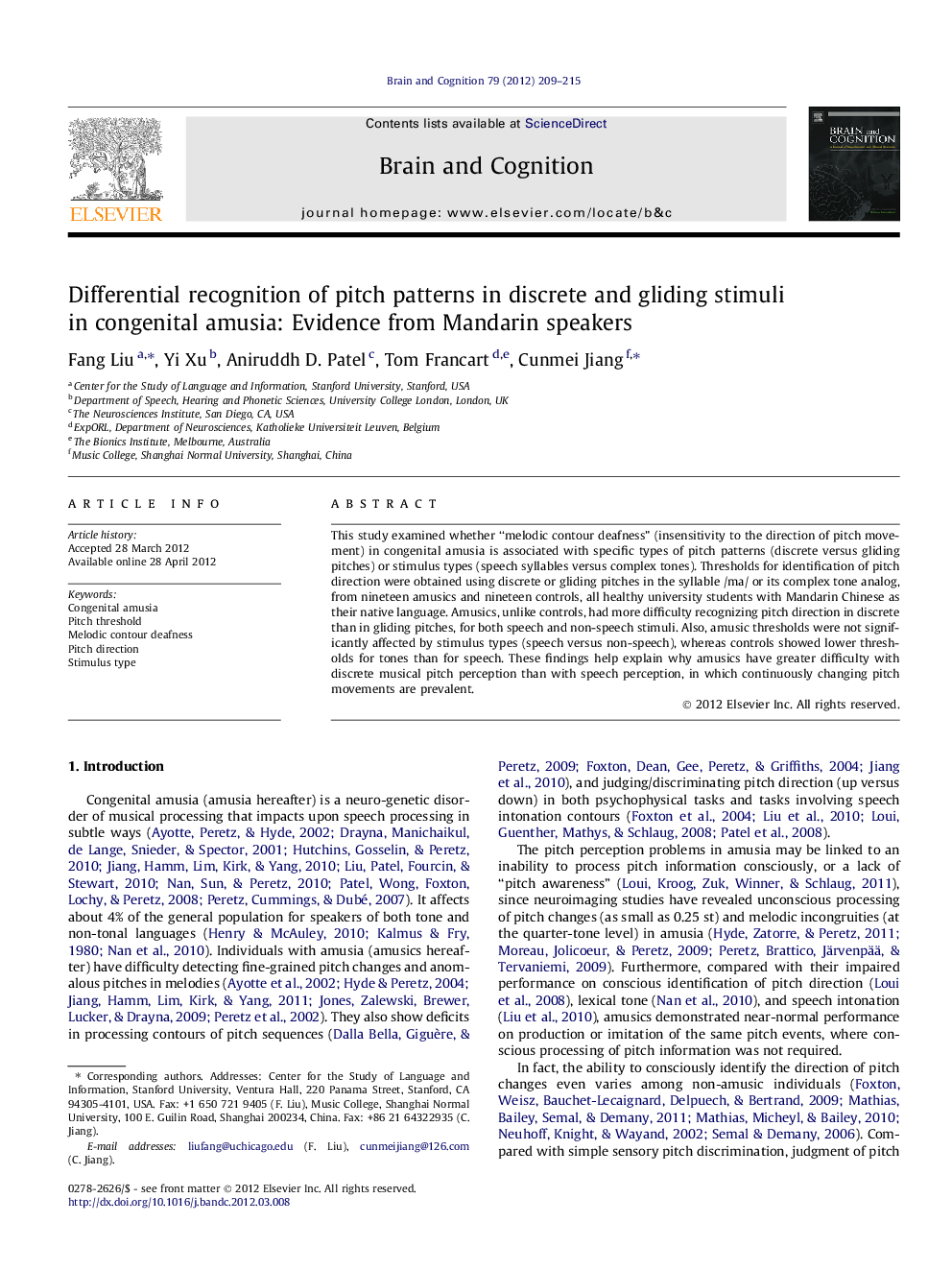| کد مقاله | کد نشریه | سال انتشار | مقاله انگلیسی | نسخه تمام متن |
|---|---|---|---|---|
| 924414 | 921225 | 2012 | 7 صفحه PDF | دانلود رایگان |

This study examined whether “melodic contour deafness” (insensitivity to the direction of pitch movement) in congenital amusia is associated with specific types of pitch patterns (discrete versus gliding pitches) or stimulus types (speech syllables versus complex tones). Thresholds for identification of pitch direction were obtained using discrete or gliding pitches in the syllable /ma/ or its complex tone analog, from nineteen amusics and nineteen controls, all healthy university students with Mandarin Chinese as their native language. Amusics, unlike controls, had more difficulty recognizing pitch direction in discrete than in gliding pitches, for both speech and non-speech stimuli. Also, amusic thresholds were not significantly affected by stimulus types (speech versus non-speech), whereas controls showed lower thresholds for tones than for speech. These findings help explain why amusics have greater difficulty with discrete musical pitch perception than with speech perception, in which continuously changing pitch movements are prevalent.
► Pitch direction thresholds in speech and tones assessed for Mandarin amusics.
► Discrete stimuli cause more problems than gliding stimuli for amusics.
► Amusic thresholds not affected by stimulus types (speech versus non-speech).
► “Melodic contour deafness” in amusia manifests in both speech and music.
► This helps explain the apparent domain-specificity of amusia.
Journal: Brain and Cognition - Volume 79, Issue 3, August 2012, Pages 209–215